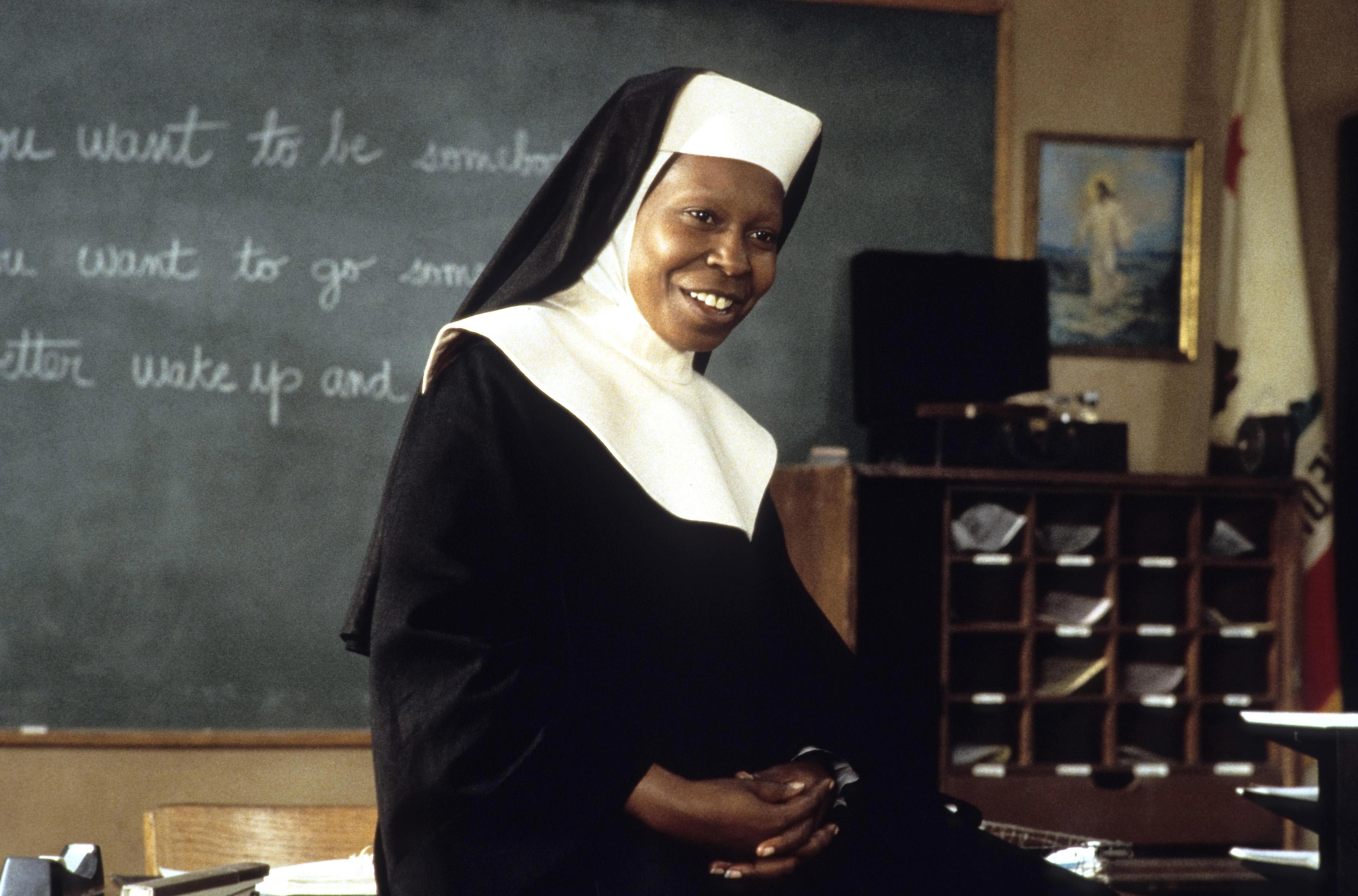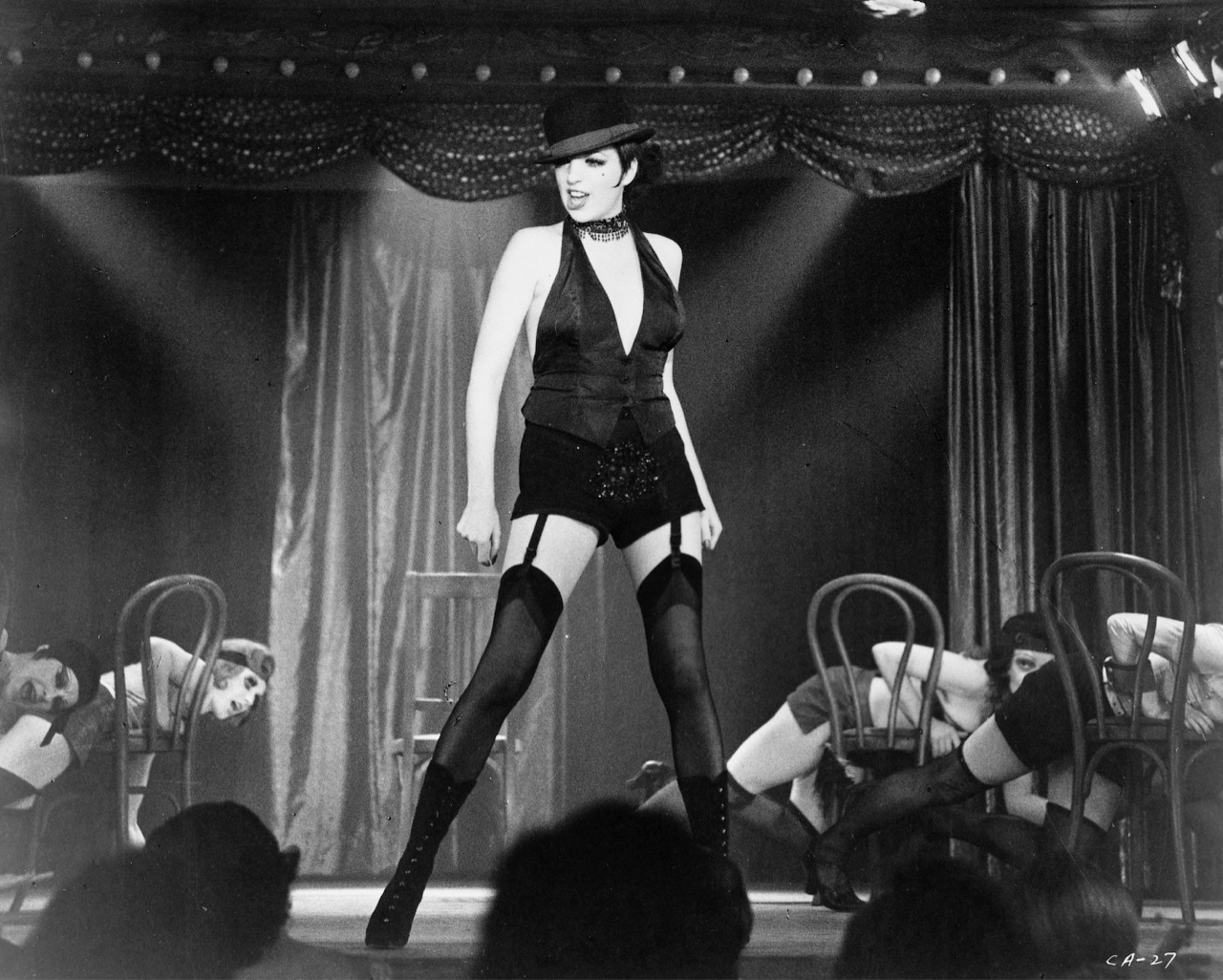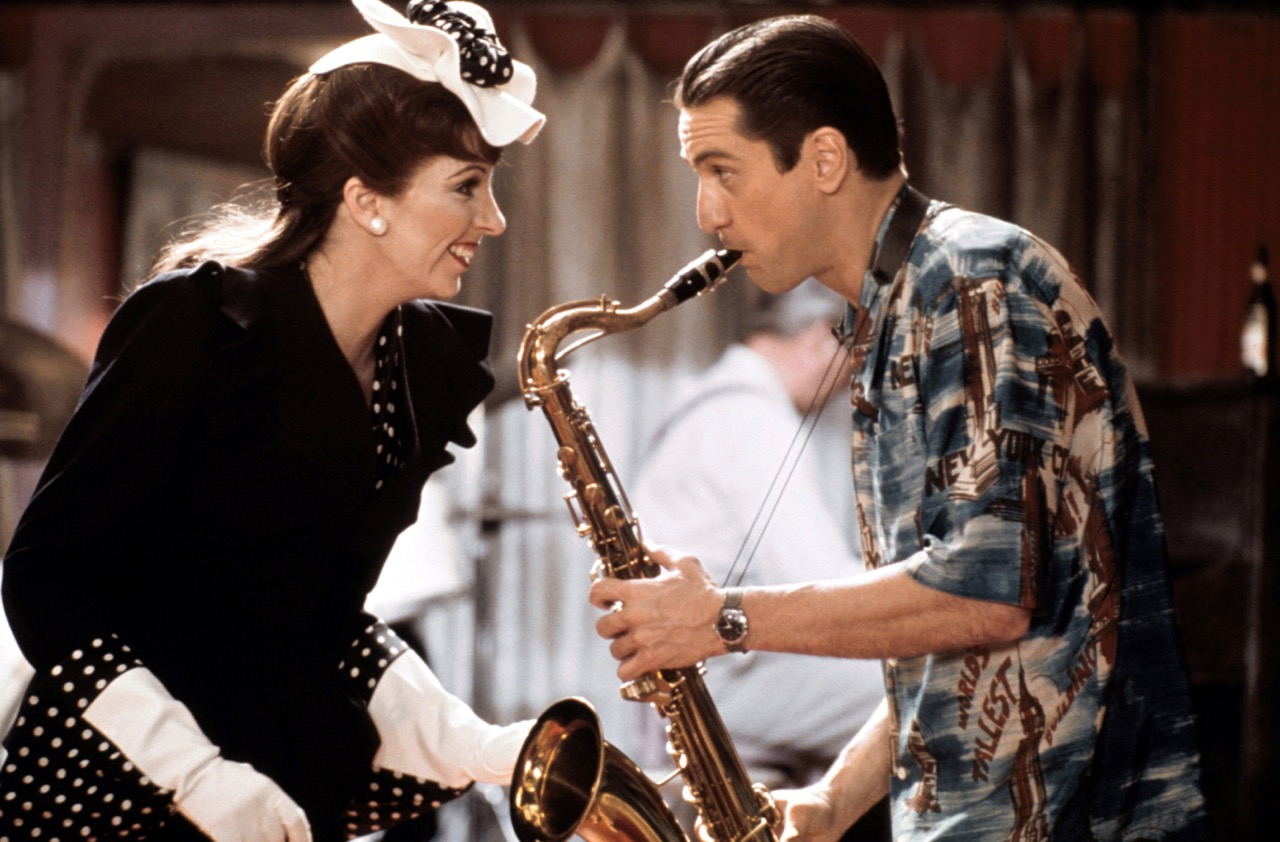 4 Columns
4 Columns

4Columns mascot Sparky and assistant managing editor Bolek reckon Friday night’s alright for dancing, especially after a heady Thanksgiving feast. In honor of their desire to paw-ty, the magazine breaks from publishing this week. We’ll be back with a new issue December 3.
In the meantime, inspired by our wriggling and shimmying pups, we offer these recent archival reflections on the movie musical for your binge-reading (and watching) pleasure this holiday weekend.

Whoopi Goldberg as Deloris Van Cartier (alias Sister Mary Clarence) in Sister Act 2: Back in the Habit. © 1993 Touchstone Pictures. Photo: Suzanne Hanover.
Early this year, our critic Andrew Chan waxed poetic on a film that was a commercial and critical flop in its own time, but has ultimately stood up to be arguably the best movie musical of the 1990s: Sister Act 2: Back in the Habit (1993), “a singer’s movie for the ages, one with virtually no contemporary rivals. . . . Not only is it attentive to the joys of different kinds of singing—private and public, solo and choral, sacred and secular—but it also feels like a film that could have been made only by people who understand on an intuitive level why we sing in the first place.” Whoopi Goldberg gets top billing here, of course, but the real star of the film is a precocious, pre-fame Lauryn Hill.

Liza Minnelli as Sally Bowles in Cabaret. Image courtesy Getty Images. Photo: Silver Screen Collection.
Going back a few decades, Michelle Orange argues that the movie musical, for her, is Bob Fosse’s 1972 Cabaret: “If his work is often described using double-edged terms like stylish, Cabaret concentrates Fosse’s interest in stories about style—its power to define and transform, to dominate and subdue. His uniquely American sensibility found its most indelible expression in a Weimar-era fable that probes the relationship between fascism and bourgeois entertainment.” Much as Hill overwhelmed Sister Act with her talent years later, here, star Liza Minelli’s “hold on the viewer is too complete to be comfortable,” Orange writes “Her bravura displays of talent deepen that bind, dazzling audiences.”

Liza Minnelli as Francine Evans and Robert De Niro as Jimmy Doyle in New York, New York. Image courtesy MGM/Park Circus.
Melissa Anderson on New York, New York
The general reader has likely already seen Sister Act 2 and Cabaret, a return to which may be a nostalgic comfort over the holiday weekend. But lesser-known may be Martin Scorsese’s lavish musical experiment, 1977’s New York, New York, also starring the brilliant Minelli, here alongside Robert De Niro. New York, New York was Scorsese’s (largely improvised) salute to the Hollywood musicals of the 1940s and ’50s that he had so adored in his movie-mad youth, writes 4Columns film editor Melissa Anderson. The result is a sumptuous and swoony but anguished and scorching psychodrama of a couple imploding.

P. T. Barnum (Hugh Jackman) with the oddities in The Greatest Showman. Photo: Niko Tavernise.
Ed Halter on The Greatest Showman
The movie musical may seem a form belonging to a bygone era, but never fear, it still persists today, such as in 2018’s insipid The Greatest Showman, based on the career of legendary nineteenth-century impresario Phineas Taylor Barnum. Insipid as it may be, as our critic Ed Halter muses, the film’s interest lies in the incongruity between its desire to offer light-hearted family fare and a tale of a great man’s heroic self-actualization with the grim reality of P. T. Barnum’s life and legacy. “Infamous as one of history’s greatest pioneers of the publicity stunt, he has long been celebrated as a scam artist extraordinaire; a showbiz folk hero unparalleled for his ability to separate rubes from their cash; an unabashed trafficker in human oddities, exaggerated novelties, and fraudulent artifacts,” Halter writes. “While Barnum didn’t actually coin the phrase ‘There’s a sucker born every minute,’ your willingness to believe that he did goes halfway to proving the axiom’s point.”